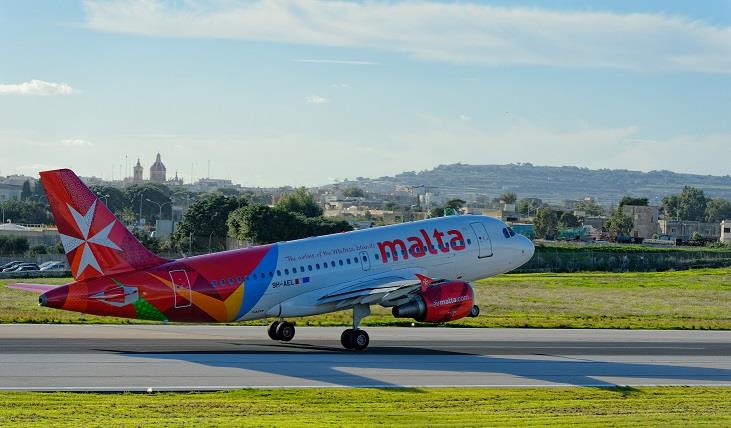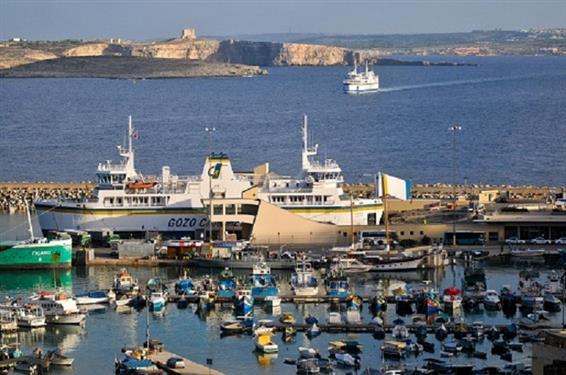Feltom CEO Genevieve Abela told The Malta Independent on Sunday that language students occupy 13 per cent of all bed-nights, amounting to four per cent of all tourists.
“An average tourist stays in Malta for eight days, while language students stay for 21,” she said.
Out of all tourism industries, “we are one of the few not to suffer from seasonality. We are perceived to peak in summer due to the junior (under-18) market, which makes up around 40 per cent of our incoming students. They tend to go abroad during the school holidays and there is a sixweek bloc where most language schools here offer a junior camp for general English.

Air Malta could be more competitive
As regards Air Malta, Feltom is very supportive of the national airline, but feels that the company could be more competitive. “When a student chooses Malta, we must remember that they have paid for accommodation, lessons and so on and thus are more likely to use low cost airlines as they are the cheaper option.”
She stressed that Air Malta has not really revised its prices in a while. It is revising its customer service side, but not its prices.
“As an example, let’s look at Milan. An average price is €300€400 from Air Malta in peak season. That’s €300 over and above the amount they would be spending in Malta for accommodation and tuition. If they choose Ryan Air from Bergamo it’s maybe €200 in peak season.
“The more competitive Air Malta becomes, the more competitive the language industry will become”.
Feltom has found that around 40 per cent of customers using new routes are students. “Once we discover, through the Malta Tourism Authority or through airlines, that a new route will open, we begin marketing in that area. A route we have been pushing for, which nobody seems to have considered, is one to Portugal. It takes around 12-15 hours to get there with connections when in reality it is a twoand-a-half-hour flight. We would be able to fill this flight with students.
“Most schools allocate time during the year, normally around New Year, to shut their doors and carry out any work needed.
“Due to a change in how we market our product, we now see mature students coming to Malta. Most schools see a large number of students arriving during their gap year, as some European countries require students to spend three to six months in an English speaking country before they can get their degree.”

Students from countries like Brazil and China come for three, six or even nine months, she said.
“Only 21 per cent of underage teens that come to Malta come to study English, so when seeing young people out and about they are not necessarily students.”
She mentioned that prices in Malta are better than those in the UK. “One can have a relatively good meal in Malta for a decent price.”

Gozo’s niche market
With regard to Gozo, she said there is one fully operational language school, while another school has an annex used during the summer. “Gozo is a niche market. There is always something happening in Malta, events every weekend, a play or an exhibition and so on, which is quite attractive to prospective students. In Gozo, there is a particular type of student that wants to go there.
The school situated in Gozo could be considered a “boutique school,” she added. “There are Gozitan teachers who show you around the island, small classes and so on.”
“The kind of students who choose Malta’s sister island are the same as Gozo’s tourism market.” She mentioned that Japanese women and elderly German nationals are inclined to attend the school there.

Maltese language
For a number of years Feltom has been lobbying with the Malta Tourism Authority on how the language school industry is advertised as well as the English language. “A decision a few years ago was made to change all street signs into Maltese and the fact that we, constitutionally, are a bi-lingual country is a huge selling point for Malta. The fact that people speak English in their daily lives is another.
“We would like to see literacy skills among young people grow”, she said. Ms Abela spoke about a rather interesting issue currently affecting Maltese. “Finding Maltese who speak languages is problematic, so we end up with Europeans coming from other countries who speak more than one language to work in the front-ends of companies”.
“Past generations in Malta had quite a linguistic repertoire and could speak English, Maltese, Italian… and maybe French or German, however today it is very difficult to find people who can speak proper English and Maltese. One of Feltom’s biggest issues is that Malta fought very hard to keep our language yet we (Feltom) feel that Maltese language lobby groups have failed, as we are bastardising the language with words like ‘futbol’. Other languages use the proper English spelling and italicize it, or place it in inverted commas.”
Aside from being an accrediting body as well as a lobby group, Feltom also advertises Malta as a language school destination. “When joining the EU, we became part of the Schengen Area. Traditionally, we have always targeted EU countries, with Italy and Germany being our main goals, however there has been a shift to the BRIC countries, primarily Brazil, Russia and China. They are not English speaking countries but have obviously recognized the need for English in order to survive globally. Our current target market also taps new EU countries in Eastern Europe like Hungary and Poland, who are investing in their education.”